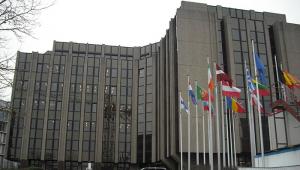A review by the European Court of Auditors has explained how the EU allocates funds for its cohesion policy in a bid to help member states and regions access them more easily.
“This year is of crucial importance for the next seven-year budget of the European Union,” said Iliana Ivanova, a member of the European Court of Auditors.
“It is vital that all stakeholders take informed decisions, so that cohesion policy delivers even more with a reduced budget.
“In this context, our review explains in an accessible way the complicated process for allocating cohesion policy funding to member states.”
The European Commission has proposed an EU budget for 2021–2027 of €1,279 billion (£1,092bn), of which €373 billion is dedicated to cohesion spending – 10% less than in the previous 2014–2020 spending round.
The auditors’ “rapid case review” compares the amounts proposed until 2027 with the previous round and provides examples of how the calculations work.
It is generally agreed that the process by which cohesion funding is allocated is a headache, and the decision on what slice of the EU budget is devoted to cohesion is ultimately political.
Brussels allocates cohesion policy funds – from the European Regional Development Fund, the European Social Fund Plus, and the Cohesion Fund – to member states and regions according to a range of methodologies, mostly based on their relative wealth.
Countries and regions can also benefit from funds based on socio-economic and environmental factors such as their levels of youth unemployment or completed education.
Efforts to calculate the proposed levels of cohesion funding for individual countries have been complicated this time round because some regions and countries have become richer or poorer since the previous spending period.













